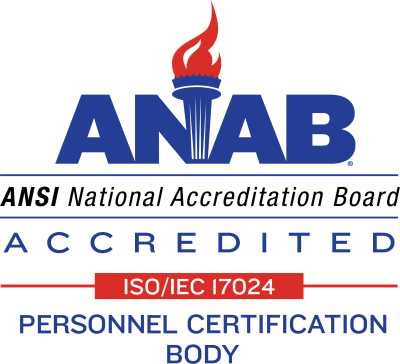CompTIA exams are built by the industry, for the industry. We draw the content for the exams from a combination of industry-wide survey feedback and contributions from our team of subject matter experts. The result is a rigorous exam development process representing thousands of hours spent exceeding the knowledge standards the industry expects.
Listed below are some of the activities that must be considered in developing a high-stakes certification exam and how CompTIA addresses those considerations.
Subject matter experts (SMEs)Subject matter experts are used in focus groups, item writing sessions and item review sessions. CompTIA estimates that 5,000 subject matter expert hours are required to develop one exam.
Psychologist/PsychometricianA trained psychologist/psychometrician assists the development, review and maintenance of the exam. This ensures that the test and the test development process are legally defensible. Our exam development process for all of our certifications abides by and exceeds the test development standards of the following:

Impartiality and Objectivity
As part of our rigorous processes in maintaining the highest quality standards and ensuring we are appropriately addressing the needs of the IT industry through certification, CompTIA is committed to impartiality and objectivity in carrying out its certification activities as well as any conflict resolution that arises from these activities. Please feel free to contact CompTIA with any concerns you may have by filling out our hotline form here.
Security
Security continuously ensures the integrity of the exam process. CompTIA takes exam security seriously and therefore, involves an industry council that sets standards for global test security.
Disclaimer regarding CompTIA Training and CompTIA Certification Exams
CompTIA provides high-quality training materials and live online training for candidates who are seeking to enhance their on-the-job skills. Similarly, CompTIA produces world-class certification exams that validate the skills required for a candidate to perform efficiently and effectively on the job.
Official CompTIA Content, training materials and classroom instructional content are created independently of the certification exams and in collaboration with different subject matter experts. CompTIA learning content, training materials and classroom instructional content are rigorously evaluated to ensure coverage of the published exam objectives. These materials offer candidates the opportunity to prepare for CompTIA certification exams using best-in-class content and learning techniques.
It is the goal of CompTIA certification exams to validate candidates have the requisite skills and knowledge as outlined in the exam objectives. To create certifications, CompTIA adheres to strict ISO guidelines to ensure the entire certification process is free of any and all bias, including internal bias or unfair advantages candidates might otherwise have by using CompTIA training materials or live CompTIA training sessions. Therefore, please know CompTIA does not provide any guarantees that candidates who use Official CompTIA Content, training materials or live online training will pass CompTIA certification exams.
CompTIA Policy regarding the sharing of Pass Rates and other Confidential Exam Data
CompTIA certification exams use a criterion-referenced approach to evaluate minimal competency within a job role. Candidates’ scores are compared
to an established standard or cut score to determine pass/fail status on an exam. This in turn requires various analyses and resulting data points to be considered when reviewing the overall performance, health and validity of CompTIA certification
exam scores, as well as the intended interpretation and use of examination scores.
CompTIA certification exams are not designed to measure a candidate’s ability to learn nor to validate if a candidate acquired new knowledge and skills after participating in a training engagement of any kind. In addition, CompTIA certification exams do not attempt to measure a person’s knowledge and skills when compared to other similar cohorts or groups of individuals (norm-referenced exams). Rather, CompTIA’s certification exam scores are intended to be used to identify minimal competence within a job role, and using these scores for any other purpose goes against the intended and stated purpose of CompTIA’s certification exams.
Therefore, given CompTIA's intended uses and interpretations of exam scores, as noted above, the confidential nature of the statistical data generated as a result of CompTIA’s psychometric practices, and the potential for misinterpretation of a single data point, such as a pass rate, it is CompTIA’s policy to not disclose pass rates to any external third party. Finally, all of CompTIA’s exam content, results data and analyses are classified highly confidential. To preserve the validity, integrity and overall brand equity of CompTIA’s certifications, these data and information are never shared with any external third party.
CompTIA supports the ongoing development of credentialing best practices through our engagement with the Institute for Credentialing Excellence.
